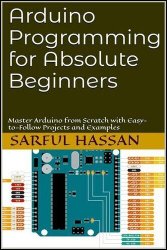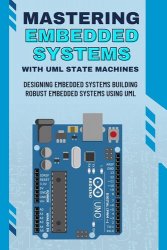- Добавил: literator
- Дата: 22-10-2024, 03:32
- Комментариев: 0
 Название: Advancements in AI and IoT for Chip Manufacturing and Defect Prevention
Название: Advancements in AI and IoT for Chip Manufacturing and Defect PreventionАвтор: Rupal Jain
Издательство: River Publishers
Год: 2024
Страниц: 152
Язык: английский
Формат: pdf (true), epub
Размер: 29.2 MB
This is essential reading for semiconductor professionals seeking to expand their knowledge on silicon processes, understand the significance of defect prevention, and explore methods for optimizing processes by reducing defects using AI and IoT technologies. In the dynamic landscape of semiconductor manufacturing, the focus on processes and defect prevention stands paramount. Traditional approaches have yielded valuable insights, yet the emergence of Artificial Intelligence (AI) and Internet of Things (IoT) technologies heralds a new era in defect prevention strategies. If you are a semiconductor professional seeking to expand your knowledge on silicon processes, delve into the significance of defect prevention, and explore methods for optimizing processes by reducing defects using AI and IoT technologies, this book is for you. Similarly, if you are an engineer specializing in AI and Machine Learning aiming to transition into the semiconductor industry to contribute to process optimization, this book offers valuable insights. It is also ideal for interdisciplinary researchers engaged in defect analysis, materials science, semiconductor process optimization, and AI-ML applications at the cutting edge of technology. Additionally, early graduates or Master’s students aspiring to enter the semiconductor industry or corporate sector will find this book beneficial for gaining foundational knowledge and understanding industry practices. Meticulously crafted, this book provides concise, yet insightful content tailored to today's fast-paced readers. It emphasizes semiconductors, manufacturing processes, and defect prevention, offering a comprehensive understanding of these critical areas. The integration of AI and IoT in chip manufacturing defect prevention represents a groundbreaking advancement.









